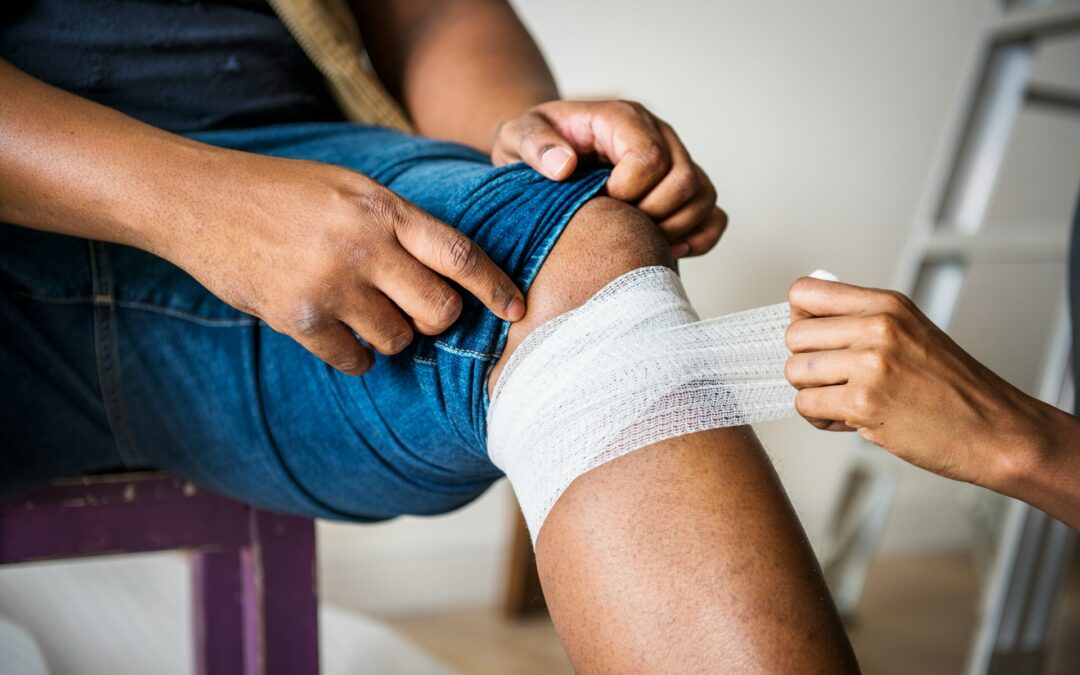Living with a wound that doesn’t seem to be getting better can create a lot of stress, especially when getting to a clinic or provider feels out of reach. Whether it’s due to limited mobility, lack of transportation, or the demands of daily life, access often becomes the biggest hurdle to healing. In places like Brentwood and Nashville, where people are spread out and traffic can be tough, some folks decide to wait it out rather than seek the help they need. That delay can sometimes create more problems than it solves.
Wound care isn’t something you want to push off, especially when it goes beyond a surface scrape or nick. Deep wounds can turn serious quickly if they’re not cleaned, dressed, and checked the right way. The good news is, location doesn’t have to be a roadblock anymore. You shouldn’t have to drive across town or sit in a waiting room when your energy is already low. There are ways to get expert help right where you are, without any added stress or inconvenience.
The Risks of Ignoring Deep Wounds
Wounds that seem small at first can sometimes hide more trouble underneath. When a cut or sore doesn’t close up over time, it may be doing more damage than you realize. Without the right care, deep wounds can take much longer to heal and often come with risks that aren’t easy to notice in the beginning.
Why does this happen? Because wounds change. One day it might look calm. Two days later, it starts to swell or drain. Watching those changes matters, but it’s hard to tell what’s normal and what’s not if you’re trying to manage it alone.
Here are a few problems that can happen when a wound isn’t checked by a medical professional:
– Infection, especially deep in the tissue
– Skin breakdown from pressure, friction, or poor circulation
– Exposure to dirt and bacteria from improper covering
– Delayed healing from missed warning signs
– Limited movement or pain as the wound gets worse
Picture a person in Brentwood who slips while raking leaves in the fall. Their knee gets scraped, so they clean it up and put on a bandage. A few days later, redness spreads, and it becomes hot to the touch. They wait, thinking it just needs more time, but soon it’s painful to walk. By the time help is called, it’s infected and more serious. That kind of delay could be avoided if care were brought to their home early on.
Wounds won’t pause while life gets less hectic. Left untreated, they can turn into tougher problems. That’s why getting looked at early is always the smarter choice.
Understanding Mobile Wound Care
Typical wound care often means finding a clinic, booking an appointment, arranging a ride, and sitting in a waiting room. For some people, that’s just not doable. So what if the care you need can come to you instead?
That’s where mobile wound care stands out, especially for patients in Brentwood and Nashville. It’s a personalized service that brings licensed wound care professionals to your home, facility, or wherever you are. These visits are focused, not rushed, and carefully adapted to what you need at that moment.
Here’s what mobile wound care usually includes:
– Dressing changes and regular wound cleanings
– Debridement to remove dead tissue and help healing
– Monitoring inflammation, drainage, or signs of infection
– Managing supplies so you don’t have to make outside trips
– Consistent scheduling that works with your day, not a clinic’s calendar
This type of home-based care is perfect for people recently discharged from the hospital, dealing with chronic conditions, or simply unable to make regular trips out. And in colder months like November, it takes away the added risk or discomfort of traveling while hurt. With fewer delays and less chance for complications, healing at home becomes a lot more doable.
How to Access Expert Wound Care from Home
Getting top-notch care for a wound at home shouldn’t feel complicated. If you or someone you know is dealing with a wound that’s slow to heal or causing pain, it starts with reaching out to a provider like Southern Wound Care that offers mobile visits.
There’s no need for transportation, no gathering supplies, and no time lost sitting in a waiting room. Once your appointment is made, a licensed provider arrives with everything needed to help you. That includes sterile tools, dressings, and wound-specific treatment options.
Here’s what usually happens during a home visit:
– The provider reviews the wound’s condition and how it’s responding
– Cleans the area and removes any dead or infected tissue
– Applies fresh dressings to support healing and prevent exposure
– Checks for infection, odor, drainage, or spreading redness
– Gives you info on how to continue caring for the wound
Follow-up care matters just as much. Healing takes time and each wound has its own pace. Some respond quickly while others need regular monitoring. Staying on top of follow-up visits helps prevent setbacks and makes room for small adjustments in treatment when needed.
In Brentwood and Nashville, patients say they feel more at ease when care comes to them. It keeps the process consistent and removes most of the pressure and worry. It also gives more room for relationship-building with the provider and better tracking of healing over time.
Ensuring Swift Healing: Success Stories
Sometimes healing needs more than just products and time. It needs people paying attention, making things easier, and reacting early to small changes. That’s exactly what mobile care promotes. When a wound care provider visits a home, they get a much better view of the full picture.
Take the example of an older adult in Nashville with diabetes who developed a foot ulcer. He didn’t feel comfortable going out with swelling and pain. By bringing the care to him, the provider not only cleaned the wound but also adjusted his footwear and worked with him on blood sugar management that could affect healing. That kind of personal focus led to steady healing without the added stress of leaving home.
Or the retired teacher in Brentwood mentioned earlier—her wounds from surgery could’ve taken a difficult turn. Instead, home visits allowed early detection of poor circulation, and her care shifted immediately. With close monitoring, she avoided further complications.
These aren’t just one-off stories. They’re real examples of how wound care doesn’t have to be tied to a building. It can come to people when and where they need it most.
Keep Healing Close to Home
Just because someone has a wound doesn’t mean they should have to pause all parts of their life or rely on others to get across town for treatment. Whether you’re recovering from surgery, living with a chronic condition, or facing a new injury, healing at home with professional help isn’t just possible—it might be the best choice.
Brentwood and Nashville have unique challenges when it comes to accessing consistent medical care. But with trained providers ready for mobile visits, the weight of distance, traffic, and busy schedules gets lifted.
When the care fits into your life, healing becomes less about the struggle and more about progress. And that’s the big change mobile care brings—it meets you where you are and helps you move forward without added disruption.
If you’re looking to receive expert care right in your own home, connecting with a wound specialist near me can make all the difference. Southern Wound Care offers convenient and effective mobile visits, ensuring you get the professional attention you need without the inconvenience of travel. Embrace the comfort of healing at home and reach out to learn more about how we can support your recovery journey.




